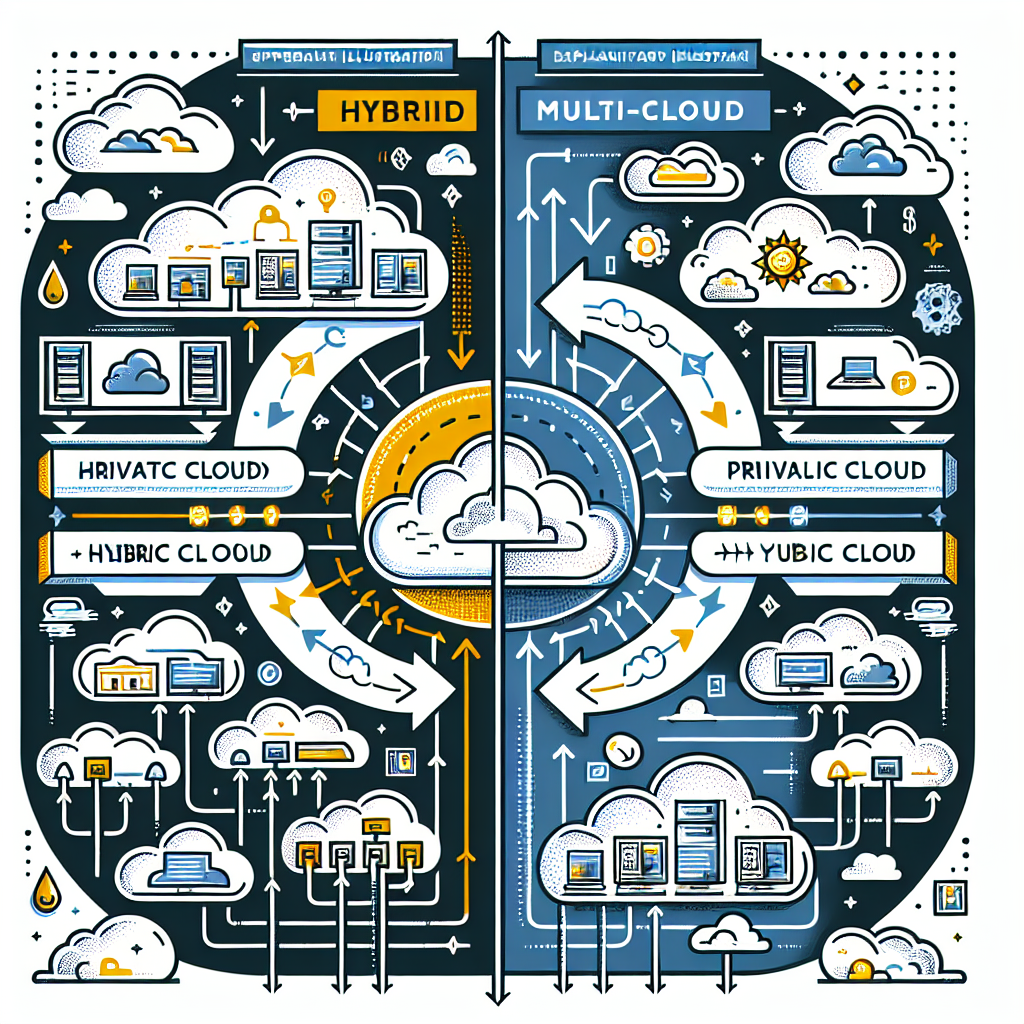Your cart is currently empty!
Hybrid Cloud vs. Multi-Cloud: Understanding the Differences

In recent years, cloud computing has become an integral part of many businesses’ IT infrastructure. With the rise of cloud services, companies are faced with the decision of which cloud deployment model to choose – hybrid cloud or multi-cloud. While both options offer their own set of benefits, it’s important to understand the key differences between the two in order to make an informed decision.
Hybrid Cloud:
A hybrid cloud model involves the use of both public and private cloud services to meet the specific needs of a business. This allows companies to take advantage of the scalability and cost-effectiveness of public cloud services, while also maintaining control over sensitive data by storing it in a private cloud environment. This type of deployment model is ideal for organizations that have a mix of workloads with varying security and compliance requirements.
One of the key advantages of a hybrid cloud is its flexibility. Companies can easily scale their infrastructure up or down based on their needs, without being locked into a single cloud provider. Additionally, a hybrid cloud allows for seamless integration between on-premises and cloud-based resources, enabling businesses to leverage the best of both worlds.
Multi-Cloud:
On the other hand, a multi-cloud model involves using multiple cloud providers to host different workloads. This approach offers businesses greater flexibility and agility, as they are not reliant on a single cloud provider. By spreading workloads across multiple clouds, companies can avoid vendor lock-in and ensure high availability and redundancy for their applications.
One of the main benefits of a multi-cloud strategy is the ability to choose the best cloud provider for each specific workload. For example, a company may use AWS for its storage needs, while leveraging Azure for its machine learning capabilities. This allows businesses to tailor their cloud infrastructure to meet the unique requirements of each application.
Key Differences:
While both hybrid cloud and multi-cloud offer flexibility and scalability, there are some key differences between the two deployment models.
1. Hybrid cloud typically involves the use of a combination of public and private cloud services, while multi-cloud involves using multiple public cloud providers.
2. Hybrid cloud is ideal for companies that have sensitive data or specific compliance requirements, as it allows them to maintain control over their data. Multi-cloud, on the other hand, offers greater flexibility and choice in terms of cloud providers.
3. Hybrid cloud is often seen as a stepping stone to a fully cloud-based infrastructure, while multi-cloud is a strategic decision to leverage the strengths of multiple cloud providers.
In conclusion, both hybrid cloud and multi-cloud offer their own set of benefits and challenges. It’s important for businesses to carefully consider their needs and requirements before deciding on a cloud deployment model. By understanding the differences between hybrid cloud and multi-cloud, companies can make an informed decision that aligns with their business goals and objectives.

Leave a Reply